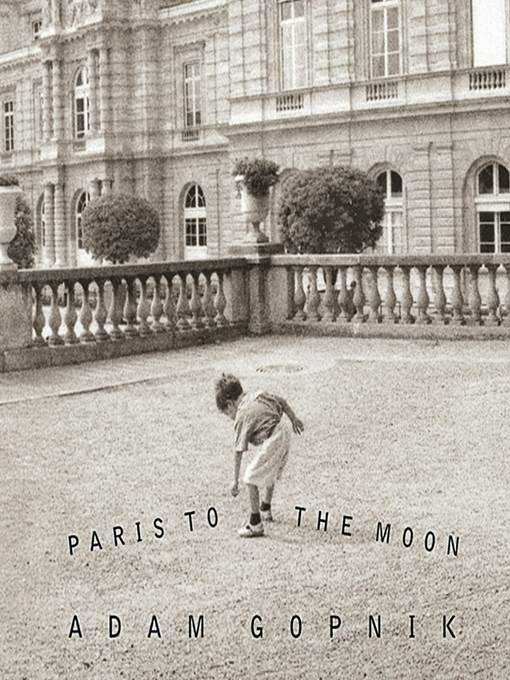
Paris to the Moon
کتاب های مرتبط
- اطلاعات
- نقد و بررسی
- دیدگاه کاربران
نقد و بررسی

New Yorker writer Adam Gopnik moved with his wife and son to Paris in 1995 to live and write; they stayed almost five years, through the birth of their second child. Gopnik's essays on Parisian culture, design, food, and the experience of raising an American child in an old and beautiful foreign city are sparkling. This selection of essays (these are unabridged excerpts) ranges from the politics of finding an apartment to a battle to defend a cherished brasserie from an Alsatian restaurant chain and includes Gopnik's poignant reflection that to the ear of his 3-year-old, who speaks perfect French, his own French is that of an immigrant. The author's rushed reading and sometimes mushy diction do not enhance the experience of his prose, so elegant on the page, but the book itself is a delight. B.G. (c) AudioFile 2001, Portland, Maine

Starred review from October 2, 2000
In this collection of 23 essays and journal entries, many of which were originally published in the New Yorker, Gopnik chronicles the time he spent in Paris between 1995 and 2000. Although his subjects are broadDglobal capitalism, American economic hegemony, France's declining role in the worldDhe approaches each one via the tiny, personal details of his life as a married expatriate with a small child. In one essay, he deftly reveals the dynamics of France's 1995 general strike by recounting his ordeal buying a Thanksgiving turkey from the localDstrikingDr tisseur. In "The Rules of the Sport," he explores the maddening, hilarious intricacies of French bureaucracy by way of a so-called New York-style gym, where his efforts to become a member encounter a wall of meetings, physical examinations and paperwork. Many of the entries, such as "The Fall of French Cooking," focus on how Paris is coping with the loss of its cultural might, and look at others of the inexorable changes brought on by global capitalism. "The Balzar Wars" describes a mini-revolt staged by a group of Parisians (including the author) when their local, family-owned brasserie is purchased by a restaurant tycoon. Throughout, Gopnik is unabashedly sentimental about Paris, yet he never loses the objectivity of his outsider's eye. His "macro in the micro" style sometimes seems a convenient excuse to write about himself, but elegantly woven together with the larger issues facing France, those personal observations beautifully convey a vision of Paris and its prideful, abstract-thinking, endlessly fascinating inhabitants. Although the core readership for this book will most likely be loyal New Yorker subscribers, its thoughtful, funny portrayal of French life give it broad appeal to Francophiles unfamiliar with Gopnik's work.

























دیدگاه کاربران